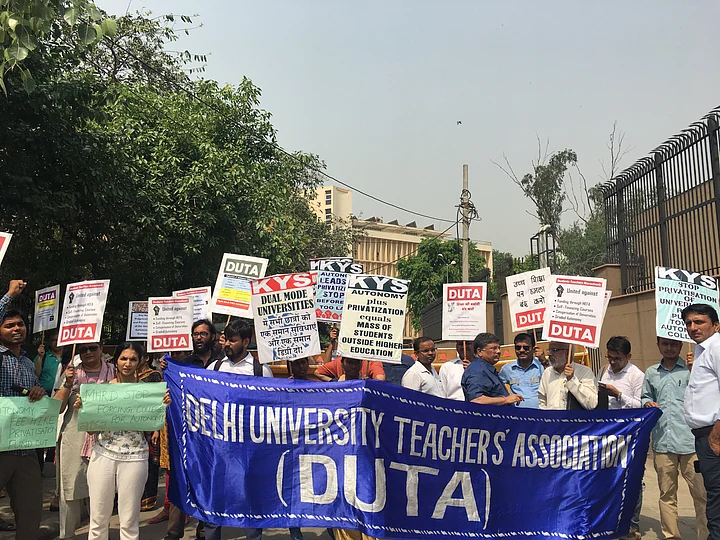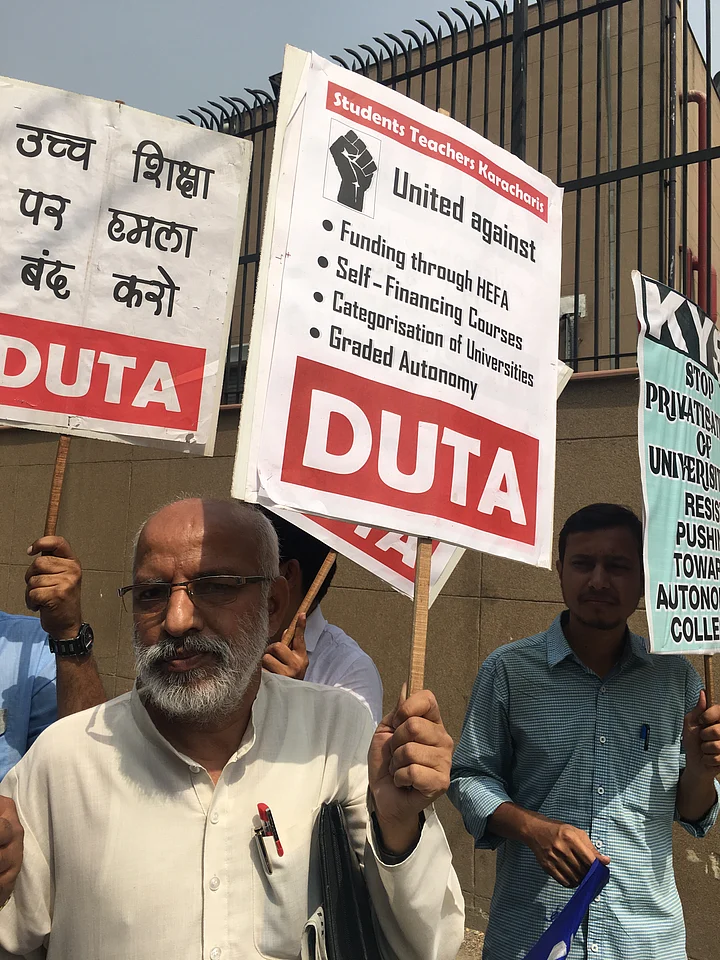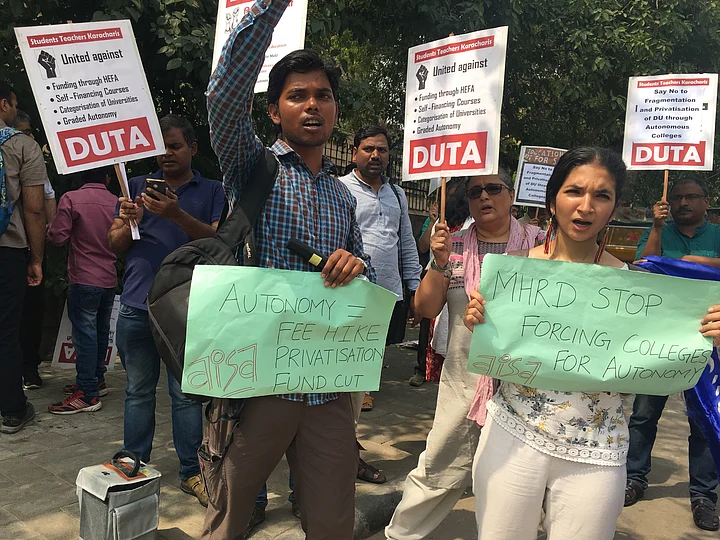Cameraperson: Akanksha Kumar
Video Editor: Purnendu Pritam
‘DUTA says GO BACK’ – that’s the motto for protests against the UGC Committee that visited St Stephen’s College on 10 May, organised by the Delhi University Teacher’s Association (DUTA). Interestingly, the Delhi University is not among the list of 60 universities and colleges that have been granted autonomy via a UGC (University Grants Commission) order of 20 March 2018.
But fear is palpable among the students who think that autonomy would result in fee hike, while teachers are apprehensive about the fate of their counterparts appointed on ad hoc basis.
But why is autonomy or increased private control often looked at with contempt in India? With not a single Indian university making it to the Top 100 in the QS World Universities Rankings this year, can autonomy help improve the quality of education at public-funded universities?
To answer that question, The Quint spoke with two education experts – Rajib Ray (DUTA president) and Parth Shah (founder president of the Centre for Civil Society) to understand arguments on both sides of the debate.
If you look through the regulations of graded autonomy, grants will be fixed. Most of these institutions do not have permanent faculty positions which haven’t been filled for many years. If we fix the grant at a certain level, what will happen to newcomers who are awaiting appointment at non-permanent positions?Rajib Ray, DUTA president
Professionalism Needed in Opaque Educational Bodies
Those favouring the decision by the NDA government, however, feel that privatisation will induct the much-needed professionalism in opaque educational bodies like the UGC and the AICTE.
Too much government control in higher education has been one of the worst examples of micromanagement and arbitrary decisions because of which a culture was built within the UGC, AICTE such that there’s no accountability for what they do and why they do it. The governance structure of Indian higher education needs to be changed and that is beyond debate.Parth Shah, founder president, Centre for Civil Society
Shah’s optimism may not be entirely far-fetched, with news reports suggesting that a large number of engineering colleges have approached the regulator, AICTE (All India Council for Technical Education), requesting that they be allowed to discontinue courses as the intake is less, which is likely to reduce BTech and MTech seats by almost one lakh.
Lack of accountability has been one of the reasons behind the deteriorating quality of education at universities and colleges which are financially aided by the government. The question is whether the students and faculty are ready to accept the new policy.
Not quite.
A video titled ‘Stephen’s shall rise’ has been doing the rounds on WhatsApp lately, with the clip showing students protesting at the campus alleging that the way autonomy is being imposed flouts the UGC Guidelines 2017 that call for consultation with all the stakeholders.
US vs China Model of Higher Education
The experience of US tells us that privatisation has increased the financial burden of students over the years. A 2014 report by The Economist criticises the mixed-funding model adapted by America since the late 1970s with reduction in state budget being compensated for by increase in tuition fees:
In California, for instance, they (tuition fees) have tripled over 15 years, and a further 28 percent rise is proposed.Report by The Economist (2014)
In the early 1990s, China tried establishing learning centres of excellence through government initiatives of ‘Project 211’ and ‘Project 985’, under which a bunch of around 1,000 selected institutes received huge amount of funds from the government for revamping infrastructure and improving the quality of education.
While some universities like Shanghai-based Fudan University have indeed made their way to the global rankings, criticism against China’s model of higher education has been that this feat was achieved at the expense of neglecting local and small institutions that deserved equal attention of the Chinese government.
If we move to a model where we force students to go for loans which will take next 20 years of their careers in just returning back, this is not what governments have been elected for.Rajib Ray, DUTA president
According to Parth Shah, there are no free lunches and students should be willing to pay extra for quality education:
One can say that prices are high. If I want to access a certain good, then I will have to borrow more money to be able to buy that good. Whether it’s education or my car, or TV, or whatever it might be, would it be worthwhile for me to borrow that money and get education? Now that’s an interesting question to ask, what’s the value that education is providing me.Parth Shah, founder president, Centre for Civil Society
(The Quint is now on WhatsApp. To receive handpicked stories on topics you care about, subscribe to our WhatsApp services. Just go to TheQuint.com/WhatsApp and hit send)



